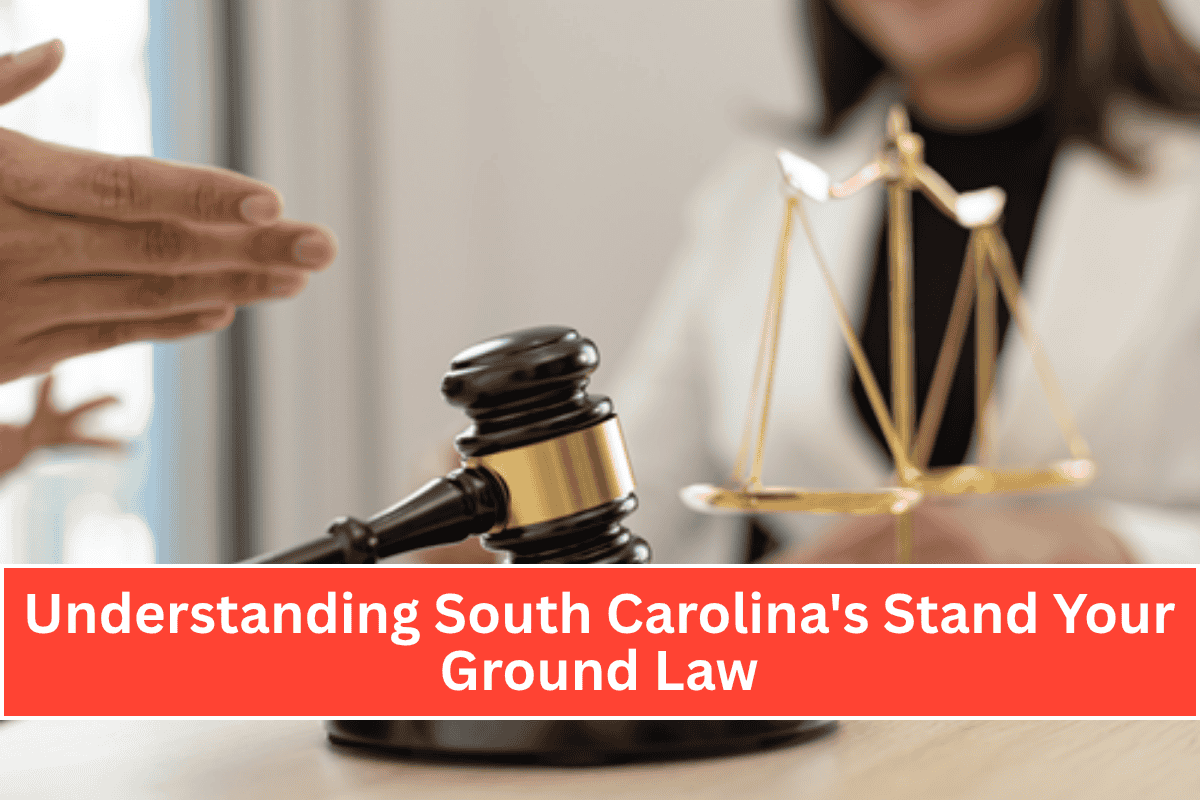South Carolina’s Stand Your Ground law allows individuals to use deadly force in self-defense without the duty to retreat, but it comes with specific conditions and limitations that must be fully understood to ensure your actions are legally protected.
If you’re ever in a situation where you feel forced to defend yourself, your loved ones, or your property, knowing how this law works could make all the difference.
Here’s what you need to know about the Stand Your Ground law in South Carolina and how it applies to you.
Key Aspects of South Carolina’s Stand Your Ground Law
1. No Duty to Retreat
In many states, you are legally required to retreat or escape from a dangerous situation before resorting to deadly force. However, South Carolina’s Stand Your Ground law removes that duty under specific conditions.
This means that if you are confronted with a threat, you do not have to retreat before using deadly force in self-defense, as long as you are:
Lawfully present in the location where the confrontation occurs, and
You reasonably believe that you are in imminent danger of harm or death.
2. Using Deadly Force Reasonably
Deadly force refers to force that is likely to result in serious bodily injury or death. Under the Stand Your Ground law, you are justified in using deadly force if:
You believe you are in imminent danger of harm, death, kidnapping, robbery, or another violent crime.
A reasonable person would have also felt that danger under the same circumstances. This is an objective standard. Simply being scared or afraid isn’t enough — the threat must be credible.
This means that reasonableness is key. You must prove that, based on the situation, your belief in danger was justified and rational.
3. Lawful Presence
You can only claim self-defense under the Stand Your Ground law if you are in a place where you have a legal right to be. This includes places like:
Your home
Your vehicle
Your workplace or any place where you are legally present
If you are committing an illegal act or are the initial aggressor, you cannot claim Stand Your Ground protection. The law only applies when you are in a lawful place and have not provoked the confrontation.
4. Castle Doctrine
South Carolina’s Castle Doctrine enhances the protections under the Stand Your Ground law when the threat occurs inside your own home. The Castle Doctrine presumes that you have a reasonable fear of harm if someone unlawfully enters your home.
This allows you to use deadly force without retreating if someone breaks into your house or tries to harm you or your loved ones inside.
Again, the use of force must be reasonable. If you feel that you or others are in immediate danger, you are legally justified in defending yourself with deadly force.
How the Law Applies in Real Situations
If you ever need to use deadly force in self-defense, the Stand Your Ground law can protect you, but proof is crucial. The police and prosecutors will thoroughly investigate the situation to determine whether your actions were reasonable. They will ask whether you:
Had a credible threat of danger,
Tried to avoid the situation if possible,
Used a proportionate level of force based on the threat.
Because the law hinges on reasonableness, the evidence you present can be the difference between a successful self-defense claim and facing serious legal consequences.
What Our Skilled Defense Attorneys Can Do for You
If you’ve used deadly force in self-defense, you need an experienced self-defense attorney to build your case and protect your rights. Here’s how our skilled attorneys can help:
Prove that your actions were justified: Your attorney will help gather evidence that shows your belief of imminent danger was reasonable.
Challenge the prosecution’s case: They can highlight weaknesses or inconsistencies in the prosecution’s argument, which could help your case.
File a pre-trial motion: If appropriate, your attorney can file a motion to dismiss the case before it even goes to trial.
Vigorous trial representation: If your case goes to trial, your attorney will provide strong, strategic representation to ensure your rights are defended.
South Carolina’s Stand Your Ground law allows you to defend yourself with deadly force when you are in a lawful location and reasonably believe you’re in danger.
But it’s crucial to understand that this defense doesn’t automatically grant you immunity. The force you use must be reasonable, and your actions will be scrutinized to ensure they were justified.
If you’re facing charges after using force in self-defense, it’s vital to consult with a criminal defense attorney who understands how to navigate the complexities of South Carolina’s self-defense laws. They will ensure your case is handled with the attention and expertise it deserves.












